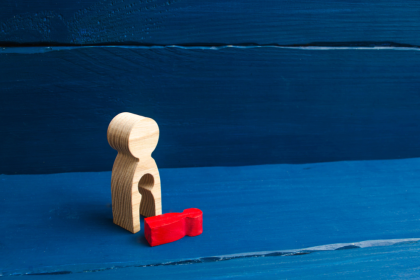Divorce is a life-altering experience, a storm of emotions swirling around legal complexities and logistical challenges. For your friend weathering this transition, your support can be a lighthouse in the fog. Here’s how you can be a compassionate and empathetic companion during this difficult time.
Understanding Their Emotional Journey
Divorce is a grieving process. Your friend may experience a rollercoaster of emotions, including sadness, anger, guilt, confusion, and loneliness. Acknowledge their feelings without judgment and allow them to express themselves freely. Be a patient listener, offering a shoulder to cry on and a safe space to vent.
Here are some supportive phrases you can use:
- “I’m so sorry to hear what you’re going through.”
- “I’m here for you, whatever you need.”
- “It’s okay to feel however you’re feeling.”
- “Would you like to talk about it?”
Avoid offering unsolicited advice or trying to fix the situation. Sometimes, simply being present and listening validates their experience.
Offering Practical Help
Divorce often involves a multitude of practical hurdles. Your friend might be overwhelmed with legal paperwork, financial decisions, childcare arrangements, or household chores. Offer specific ways you can help ease their burden.
- Help with errands or childcare: Offer to run errands, pick up groceries, or watch the kids while they attend meetings with lawyers or financial advisors.
- Provide emotional support during appointments: Accompany them to important appointments, offering emotional support and a listening ear. This can be a daunting task for them to face alone.
- Offer help with household chores: Help with cooking, cleaning, or yard work, taking some of the daily tasks off their plate. A home-cooked meal or a clean house can feel like a small luxury during this time.
Remember: Even small gestures of help can make a big difference during this stressful time. Don’t wait to be asked – take initiative and offer assistance where needed.
Maintaining the Friendship
Divorce can sometimes strain friendships. Your friend’s social circle might change and need time and space to process their emotions. However, staying connected is crucial.
- Maintain regular contact: Reach out regularly, even just a quick text or phone call. A simple “thinking of you” message can brighten their day.
- Organize social outings: Invite them for activities they enjoy, but be understanding if they decline sometimes. It might be overwhelming for them to navigate social situations initially.
- Be mindful of their boundaries: Respect their need for space or alone time, and let them know you’re always there for them. Communication is key – they’ll likely tell you if they need space. But also check in periodically to show you haven’t forgotten about them.
Tip: When planning outings, avoiding gatherings with mutual friends close to their ex-spousel might be helpfu. This can create an uncomfortable situation for everyone involved.
Encouraging Self-Care
Divorce can take a toll on mental and physical well-being. Encourage your friend to prioritize self-care:
- Healthy activities: Suggest activities they enjoy, such as exercise, spending time in nature, or pursuing hobbies. Physical activity is a great way to combat stress and improve mood, while hobbies can provide a sense of joy and distraction.
- Relaxation techniques: Recommend relaxation techniques like meditation or yoga to help manage stress. Mindfulness practices can help them stay present in the moment and reduce anxiety.
- Healthy eating: Encourage them to eat nutritious meals and stay hydrated. Taking care of their physical health will also benefit their emotional well-being.
- Social support network: Encourage them to connect with other friends and family members for additional support. Remind them they are not alone and that a strong support system is crucial.
Remind them that caring for themselves is essential for navigating this challenging time. Self-care isn’t selfish – it allows them to be more vital for themselves and those they care about.
Beyond the Initial Support: A Long-Term Commitment
While the initial stages of divorce are often the most challenging, remember that healing is a journey, not a destination. Your friend’s needs will evolve, and your role as a supportive friend may shift as well. Here are some ways to offer continued support in the long run:
- Be patient with their process: Healing doesn’t happen overnight. There will be good days and bad days. Be patient with their ups and downs, and offer unwavering support.
- Celebrate their victories: Acknowledge and celebrate their milestones, big or small. Maybe they landed a new job, started a new hobby, or simply had a good week. Recognizing their progress can be a great motivator.
- Avoid negativity about their ex: Divorce can bring out strong feelings, but resist the urge to badmouth their ex-spouse. Focus on being a positive and supportive presence in your friend’s life.
- Help them rebuild their social life: Divorce sometimes leads to social isolation. Encourage them to reconnect with old friends or explore new activities to meet new people.
- Be mindful of their dating life: They might start dating again as they move on. Be supportive and avoid judgmental comments about their choices.
Remember: Divorce doesn’t have to define your friendship. By offering unwavering support, understanding, and a listening ear, you can be a lighthouse guiding your friend through this storm and towards calmer waters.
Final Thoughts: Taking Care of Yourself
Supporting a friend through a divorce can be emotionally draining. It’s important to prioritize your well-being as well. Here are some self-care tips:
- Set boundaries: It’s okay to limit your time listening to their problems, especially if it’s taking a toll on your emotional well-being.
- Maintain a healthy support system: Lean on your friends and family for support. Talking to someone outside the situation can help you process your own emotions.
- Practice self-care: Engage in activities that help you relax and de-stress, whether reading, spending time in nature, or exercising. Taking care of yourself will allow you to be a better friend to your needy friend.
Remember, divorce is a difficult experience, but with love, empathy, and unwavering support, you can be a beacon of hope and strength for your friends as they navigate this challenging chapter.
This story was created using AI technology.

















